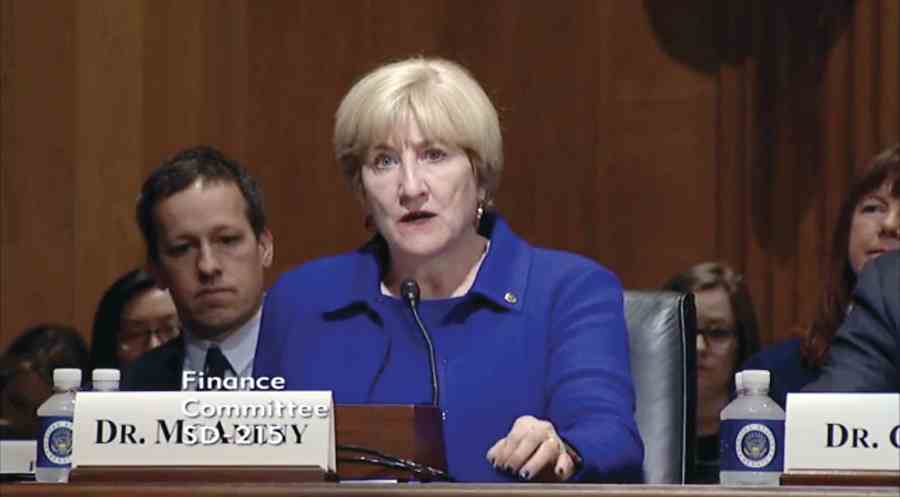Few advanced alternative payment models plus the sunsetting bonus for participation couple to keep physician interest in value-based payment low, physician groups told the Senate Finance Committee.
“One important goal of MACRA [Medicare Access and CHIP Reauthorization Act] was to provide busy physicians with a path to transition into new, innovated payment models,” Barbara McAneny, MD, president of the American Medical Association testified during a May 8 hearing to review the first 2 years of Medicare’s Quality Payment Program (QPP).
MACRA – the law that created QPP – provided a 5% bonus to physicians and other professionals who participate in the first 6 years of the program; the payment was designed to help cover expenses needed to transition to value-based care.
“Unfortunately, during the first 3 years of the program, too few APM [advanced alternative payment model] options were available for physicians, and now only 3 years remain, which is not enough time for physicians to transition to an APM,” Dr. McAneny said, calling on Congress to extend the APM incentive for an additional 6 years.
John Cullen, MD, president of the American Academy of Family Physicians, also called on legislators to extend the APM bonus for at least 3-5 years.
He also advocated for changes to QPP’s Merit-based Incentive Program (MIPS), calling for the exceptional performance bonus to reward year-over-year improvement versus simply scoring high on MIPS criteria in a given year.
MIPS “has created a burdensome and extremely complex program that has increased practice costs and is contributing to physician burnout, Dr. Cullen testified. “Understanding the requirements and scoring for each MIPS performance category and reporting the required data to CMS is a complex task and detracts from physicians’ ability to focus on patients.”
Dr. McAneny put the costs and rewards of MIPS into perspective for lawmakers.
She testified that, in 2017, her small practice was a participant in MIPS and was able to achieve the highest MIPS score of 100. That score qualified the practice for an exceptional performance bonus, which ended up being a 1.88% bonus to Medicare payments.
“After the adjustment that occurred after that, it lowered that increase to where the entire change that I got was $34,000,” she said. “When I added up how much I had to pay my EMR [electronic medical record] to submit that data, when I added up everything that I had to do in terms of paying staff overtime to make sure the data was accurate, I lost $100,000 to score that perfect score. So we need to modify that. That’s, I think, a great example of why the lower-volume practices need to be kept out of this process so they can continue to use their resources on patient care.”
Scott Hines, MD, member of the AMGA board of directors testified differently, arguing that less exclusion from participation is needed, because with around half of eligible physicians not required to participate, the pool for exceptional performance bonuses is significantly smaller than what would be the maximum available of up to 9% in 2023 as the years in the program advanced.
Between the low-volume exclusion and the budget neutrality of the program, there is little incentive to participate, he noted.


